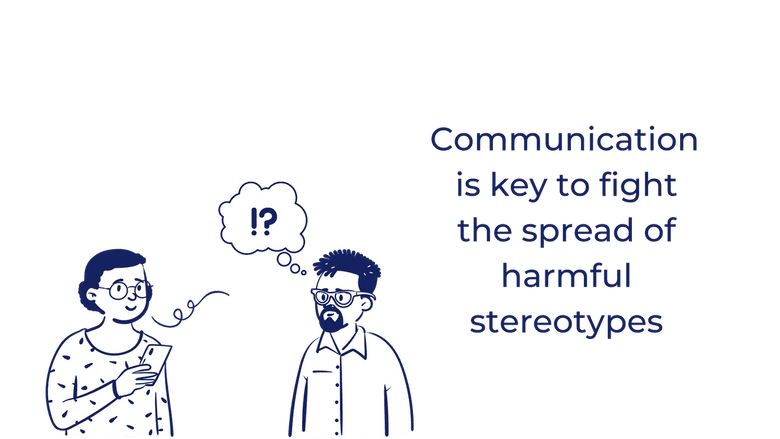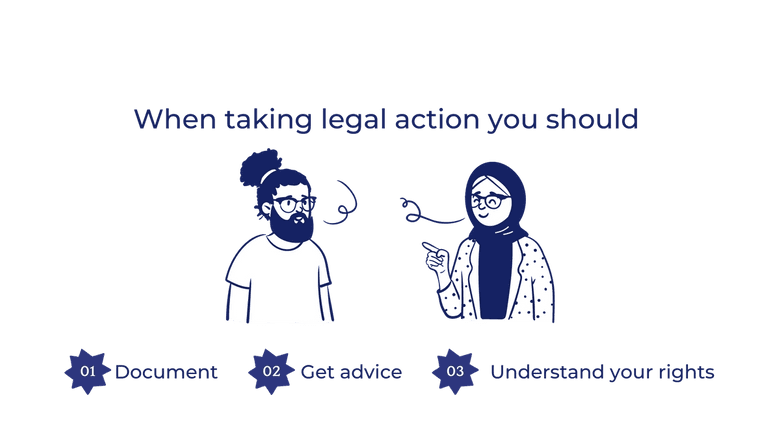Coronavirus Racism @ Work - How to Speak Up
Safe strategies to use to speak up when you hear someone act inappropriately.
COVID-19 has been incredibly hard for everyone, even in tech where we are relatively insulated. We've seen layoffs, hiring freezes, and worse - some of us have experienced seeing our friends and families fall ill. It's been a hard time and an isolating experience - being torn away from our communities to be home alone in quarantine, waiting for news of what comes next. Times like these bring both the best and the worst in people. Sadly, we're hearing of cases where frustration around the virus has become racially charged and xenophobic.
According to Tolerance.org, "Since the virus began to spread, people who identify as Asian American or Pacific Islander (AAPI) have been subjected to racist comments and jokes online or in person, and to isolating behavior from those who are afraid of catching the virus." If you've experienced this either as an observer or as a recipient, this article is meant to offer some coping strategies and explain your rights at work.
How to Respond to a Racist Comment or Joke

First, and most importantly - do not let it slide. Words can escalate into violence quickly, especially in this environment. AAPI communities in the US are experiencing acts of hate crime - not speaking up is not an option.
Start by safely questioning. Tolerance.org recommends using a neutral question, probing the person to explain themselves like:
Or, another example:
Follow up by questioning and asking for clarification. Making someone explain a racial comment or joke is a surefire and subtle way to make it clear that what they're saying is not appropriate.
Make sure you express your discomfort and clearly indicate the comment is not appropriate. One way to do that without causing an argument is by closing the empathy gap. Educate the person on why this type of comment is hurtful and what impact it can have on others' safety and wellbeing.
In fact, the COVID-19 name is not an accident. Tolerence.Org further recommends:
"If someone doesn’t understand why a comment they made was racist, you can educate them about the long history of stereotyping immigrants—and Asian people, specifically—as people who bring disease. You can explain how this stereotype is both wrong and harmful."
"And if someone tries to play down racist phrases as “just a joke,” you can educate them about the discrimination and racism many AAPI folks are facing right now, so they better understand the impact of their words."
Speaking With HR or a Lawyer

Any incident like this that makes you feel uncomfortable at work can be reported to your Human Resources team - even if you were not the subject of the comment. HR teams should be familiar with the most recent guidance from the APALA (Asian Pacific American Labor Alliance). It advises employers to include a protocol against racial discrimination in their COVID-19 response.
Racial and xenophobic comments are forbidden by law in any aspect of employment including hiring, firing, pay, job assignments, promotions, layoff, training, fringe benefits, and any other term or condition of employment. So your HR team should take this seriously. But, just in case, always follow the below steps in the event you choose to take legal action if the behavior doesn't stop or escalates:
1. Document everything carefully
This can be as simple as keeping a diary (make sure it's not on your work computer). Take screenshots of any comments or jokes over email or Slack and send those to yourself as well. Make sure your journal includes times and dates.
Here, it could help to email or chat with someone else who witnessed the incident and save their confirmation of the event and comments as well. Ask their permission or give them heads up if you intend to use it with HR later.
If you seek counseling to cope with an incident, save your receipt and document the dates.
2. Seek legal advice
Before you speak with HR, speak with a reputable attorney. Most employment lawyers will be open to a free consultation to give you guidance on how to approach this with HR. Never, ever lose sight that HR is there to protect the company, not you. Racial discrimination is a massive liability for the company - HR also knows it's difficult to prove so they may offer "sensitivity training" or something similarly ineffective and leave it at that. It's important you get support in understanding your rights from a party that's not biased.
Typically, after you report an incident to HR, they will initiate an investigation - this is the time to provide them with your proof. At this stage, you should not disclose you've engaged an attorney.
Normally an investigation can take days, sometimes even more than a week. Multiple people will be interviewed. During this time, HR will not give you specific updates on who they're speaking with. This might feel very alienating but it's just the normal HR process.
In the end, HR will issue a conclusion and notify you of what action they take based on their findings. It's important to note that they won't seek your approval, you will simply be informed.
3. Understand your rights and escalate when appropriate
There are laws that protect workers against discrimination and harassment not by just coworkers, but also customers of your company. If you have repeatedly tried to talk about well-documented issues, it might be worth considering whistleblowing or taking legal action. Understand that if you chose that route it might become uncomfortable to stay with the same employer.
Here are some laws you should be aware of:
- Title VII of the Civil Rights Act of 1964 prohibits employment discrimination based on race, color, religion, sex, or national origin.
- Civil Rights Act of 1991 provides monetary damages in cases where an employer has practiced intentional employment discrimination.
- Genetic Information Nondiscrimination Act of 2008 (GINA) disallows employment discrimination based on genetic information about an applicant, employee, or former employee.
Additionally, be mindful that there are even more laws that protect against retaliation - actions taken in an ill will as a result of a report to HR. Speak to your attorney about how to recognize and document that.
Practice Radical Self-Care

Experiencing racism or xenophobia in the workplace can be a traumatic event. It's okay to feel emotional and it's okay to take time off. Make some time for yourself to do something that makes you feel safe and recharges you - whether it's a walk, painting, or even just taking a long bath. If you need to, take a longer time off from work as well.
Speaking up is not easy and it can sometimes be extremely uncomfortable to stand up for yourself or others - but it is so important to protect the integrity of our community.
The information provided herein is for general informational purposes only and is not intended to provide tax, legal, or investment advice and should not be construed as an offer to sell, a solicitation of an offer to buy, or a recommendation of any security by Candor, its employees and affiliates, or any third-party. Any expressions of opinion or assumptions are for illustrative purposes only and are subject to change without notice. Past performance is not a guarantee of future results and the opinions presented herein should not be viewed as an indicator of future performance. Investing in securities involves risk. Loss of principal is possible.
Third-party data has been obtained from sources we believe to be reliable; however, its accuracy, completeness, or reliability cannot be guaranteed. Candor does not receive compensation to promote or discuss any particular Company; however, Candor, its employees and affiliates, and/or its clients may hold positions in securities of the Companies discussed.
